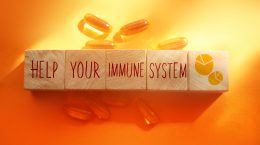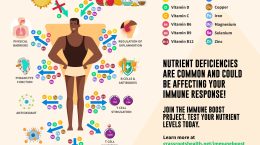
Is Vitamin D a Nutrient or a Hormone?
There is a high chance you have been misled about the ‘identity’ of vitamin D! Vitamin D is, in fact, a nutrient. Too often we read articles that begin by saying “vitamin D is...

There is a high chance you have been misled about the ‘identity’ of vitamin D! Vitamin D is, in fact, a nutrient. Too often we read articles that begin by saying “vitamin D is...

November 2nd is World Vitamin D Day – Let’s celebrate by spreading the word to others about why vitamin D is so important! November is Vitamin D Awareness Month, and the 2nd is World...

Breast Cancer Risk ~70% Lower with Higher Vitamin D (60+ ng/ml) – Part 5 In a previous post we summarized an analysis published by GrassrootsHealth that showed women with vitamin D levels at or...

How does vitamin D work to help prevent cancer? Here is a simplified explanation of the multiple ways vitamin D can help the body to fight cancer. Over 40 years ago, Dr. Cedric Garland...

Meta-analysis shows beneficial effects of vitamin D supplementation for patients with colorectal cancer As the third most common cancer world-wide, colorectal cancer affects millions of lives each year, with approximately 860,000 deaths annually. Several...

How vitamin D helps to protect against SARS-CoV-2 infection and improve outcomes in those with active COVID-19 Vitamin D is used by every cell of the body, influences the expression of thousands of genes,...

Deficiencies in zinc, selenium, and vitamin D may lead to improper immune and inflammatory response to viral infections Severe COVID-19 is associated with excessive activation of the innate immune system, leading to uncontrolled inflammation...

A simplified review of how vitamin D helps to protect against COVID-19 infection and improve outcomes in those with COVID-19 Vitamin D deficiency has now been shown to increase susceptibility to COVID-19 and increase...

What are some of the specific roles nutrients play in immune function? The immune system is essential for health and well-being, something we are keenly aware of in the current pandemic. Over the past...

Evidence shows that vitamin D levels are affected by obesity. In fact, the more fat a person has on their body (the higher the BMI), the more likely they are to have vitamin D...